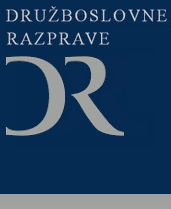Kulturna diplomacija in kultura v mednarodnih odnosih: študija primera slovenske zunanje politike
Cultural diplomacy and culture in international relations: A case study of Slovenian foreign policy
Author(s): Ana Bojinović Fenko, Jure PožganSubject(s): Politics / Political Sciences
Published by: Slovensko sociološko društvo (in FDV)
Keywords: cultural diplomacy; culture in international relations; intercultural dialogue; international relations in culture; foreign policy
Summary/Abstract: This paper presupposes that small states have a strong national interest to engage in inter- cultural dialogue in international relations due to limitations of their material foreign policy capabilities. For this purpose, small states would more likely use diplomatic and cultural foreign policy instruments to achieve their foreign policy goals, e.g. a good reputation, prestige and greater international visibility. In this context, the paper aims to establish whether a small state can compensate for a shortfall of its foreign policy capabilities in the implementation of cultural diplomacy by engaging in inter-cultural dialogue through so-called multi-actor coalitions. This research question is applied to a case study of Slovenian foreign policy. Given the relative scarcity of the existing literature in the field of cultural diplomacy, the authors firstly conceptualise culture as a foreign policy decision-making factor and instrument and, secondly, as a field of co-operation in international relations. In analysing whether Slovenia has been successful in attaining its foreign policy objectives in the field of culture, the two core concepts of cultural diplomacy and inter-cultural dialogue are complemented by the concept of international relations in culture where the state primarily focuses on attaining cultural and not foreign policy objectives. The authors conclude that Slovenia as a small state can compensate for its limited foreign policy capabilities in the implementation of cultural diplomacy by engaging in inter-cultural dialogue activities within the framework of multi-actor coalitions, albeit only if its foreign policy objectives are an integral part of the inter-cultural dialogue. The main limitation in reaching its foreign policy objectives through cultural means remains the lack of a broad political consensus regarding the content of such cultural activity, together with the substantially and organisationally non-transparent implementation of cultural diplomacy and the two notions of culture in international relations.
Journal: Družboslovne razprave
- Issue Year: 28/2012
- Issue No: 069
- Page Range: 25-53
- Page Count: 29
- Language: Slovenian

